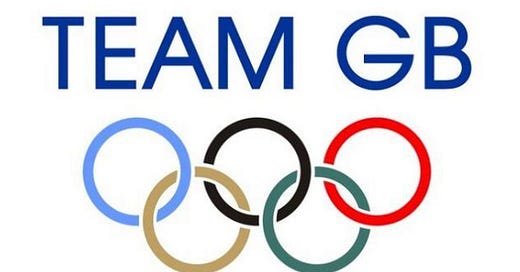A Minor Disappointment or Expectations Met?
Where will the performance of Team GB at Paris 2024 take its place in the annals of history?
A Minor Disappointment or Expectations Met?
As we enter the final weekend of the 2024 Olympics in Paris, it is an appropriate time for reflection of what has been achieved throughout the course of these games. Before the event started, Team GB were set a medal target of between 50 and 70, a total that has already been easily achieved with two days of competition still to go. Why then are there questions about whether this event has been a success for our home athletes?
Only last night I was having a conversation with a friend about whether Team GB have performed to expectations or whether they perhaps should have done better. Yes, there have been undoubted successes in the (somewhat expected) triumphs of people like Alex Yee, Keely Hodgkinson, Tom Pidcock and Bryony Page. There have also been new stars that have burst into the national conscience such as Nathan Hales, Ellie Aldridge and Tony Roberts. On top of this there have been great victories in a wide variety of team events.
However, there have also been misses in events that we were perhaps expected to win gold in. In athletics, both Josh Kerr and Matt Hudson-Smith took silver when gold was probably the expectation, Kat Johnson-Thompson also finished as a runner up (although it is fantastic that she finally won an Olympic medal to reward her efforts) and world leader Molly Caudery failed to even make the pole vault final. Although Team GB have been incredibly consistent in cycling (medalling in most events in the velodrome) the amount of golds seems less than expected and the same could possibly be said in the swimming pool. Are these real failures though or have we just been spoiled by superhuman over-performance since London 2012 (and arguably Beijing in 2008)?
Unless some incredible things happen in the last couple of days, this will be Team GB’s worst gold medal haul since 2004 (by a margin of 8 at the time of publication). However, it must also be recognised that there are underlying stories in many of the perceived ‘failures’. Both Kerr and Hudson-Smith set personal bests in their event finals and were only beaten by astounding efforts by American athletes who beat their own previous best times by more to defy expectations and taste success. Adam Peaty has done very well even to come back to anywhere near his best level and attained a silver medal despite also racing with COVID in his final. A couple of rowing silver medals were taken with heartbreaking defeat right on the line and the cycling team are still emerging from the huge void left by a mighty golden generation retiring and were also rocked by injury to Katy Marchant right before the tournament.
These are not excuses, but rather explanations of why the top spot hasn’t been found in these events. To counter-balance this, there have also been medal successes where perhaps expectation wasn’t there beforehand. Roberts wasn’t expected to win, Charlotte Fry stepped into the void left by Charlotte Dujardin to take a wonderful bronze in dressage and both Jake Jarman and Harry Hepworth took bronze medals in individual gymnastic events in their inaugural Olympics.
There have also been great performances by other athletes who have medalled like Matt Richards and Duncan Scott in swimming, Emma Finucane in cycling (who may still get gold) and the men’s and women’s relay teams in athletics. Skateboarding and BMX have also been a success in relative terms. There is much to be celebrated and in the past we would have been absolutely delighted to just get our stars onto the podium.
Success is addictive though and Team GB’s performers now expect to win. This is not a bad thing as confidence can breed success (just look at the USA’s track stars) but we still need to recognise personal growth and improvement just as much, even when gold has not been achieved.
Lottery funding has long since assured that we are very unlikely to ever return to the dismal returns of Atlanta ‘96 where Team GB only won 15 medals in total (1 gold, 8 silver and 6 bronze) and personal bests are still being set across a variety of sports but improvements will need to be made in a number of areas.
After a very disappointing Tokyo Olympics, the British rowing team has roared back at this games taking 3 golds, 2 silvers and 3 bronzes. This represents a great recovery and shows the hard work that has gone in over the last 3 years. It is a testament to the drive and determination of the athletes and coaches involved.
Following this games, there are perhaps some other sports that will need to be looked at. Despite Lewis Richardson taking a bronze in boxing, performances across the board were very disappointing with many early round exits. The men’s hockey team should also have perhaps progressed further than they did based on where they stand in the world rankings.
All sports are desperate to succeed as they know that future funding often depends on performance and it will be interesting to see where this falls once the dust has settled.
At the end of the day, I still feel that Team GB can look back on this Olympic event as a success. They have met the target set for them and despite not winning as many gold medals as recent other games, they have still performed well with many doing better than they ever have before. We have indeed been made to expect great things in recent times but these great things don’t always mean that the colour of the medal is gold, and for many (such as Caudery for example), improvement over the Olympic cycle means that there is hope that success may be attained in four years time.
Regardless, there have been incredible examples of the Olympic spirit and the motto of faster, higher, stronger being achieved by both British athletes and those from all over the world to provide a wonderful spectacle that has been fascinating to watch. Roll on Los Angeles 2028!






